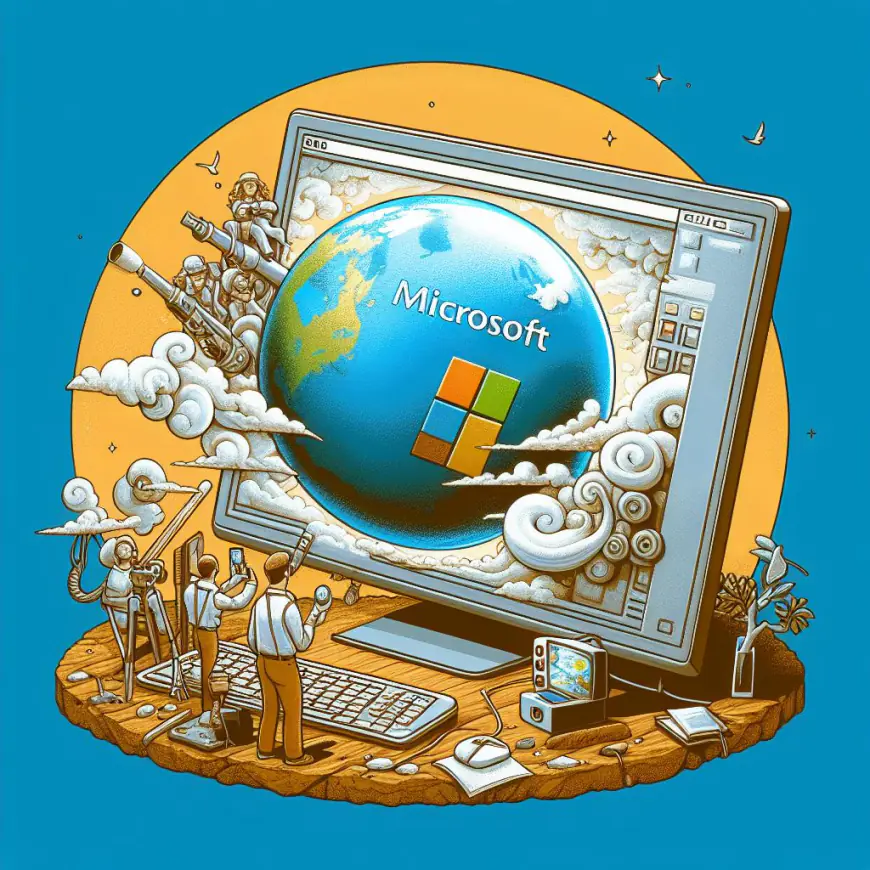Will Microsoft’s AI Filters Transform Your Video Experience?
In the realm of technological innovation, Microsoft stands at the forefront, continuously pushing the boundaries of what’s possible. With the eagerly awaited Build 2024 conference on the horizon, whispers and speculations abound regarding the tech giant’s next move. Amidst the buzz, a fascinating revelation has emerged concerning Microsoft’s potential plans to integrate AI-powered video filters […]

In the realm of technological innovation, Microsoft stands at the forefront, continuously pushing the boundaries of what’s possible. With the eagerly awaited Build 2024 conference on the horizon, whispers and speculations abound regarding the tech giant’s next move. Amidst the buzz, a fascinating revelation has emerged concerning Microsoft’s potential plans to integrate AI-powered video filters into its ecosystem. This groundbreaking development, brought to light by XenoPanther’s keen observation of Windows files, hints at a future where users could seamlessly transform themselves into various styles using advanced AI algorithms.
Microsoft’s potential leap into AI-powered video filters
Rumors surrounding Microsoft’s foray into AI-powered video filters gained traction following a recent discovery made by XenoPanther, an astute observer within the tech community. Delving into the intricacies of Windows files, XenoPanther unearthed telltale signs of impending innovation, indicating a shift toward integrating specific camera effects into the Windows ecosystem. These effects, if realized, promise to revolutionize user interaction by offering the ability to morph into different personas or styles with just a few clicks.
The potential inclusion of these AI-driven features in Studio Effects, an application renowned for its AI-based enhancements during virtual calls, further fuels anticipation among users. While the mere presence of these features in the files offers no guarantee of their eventual release, the growing demand for AI-centric technologies suggests a compelling case for Microsoft to explore this avenue further. As the tech landscape evolves, embracing AI-driven solutions becomes imperative, positioning Microsoft at the forefront of innovation once again.
Harnessing the Power of NPUs
In a strategic move to capitalize on the burgeoning AI landscape, Microsoft appears poised to leverage the capabilities of Neural Processing Units (NPUs) integrated into modern PCs. With AI-powered PCs gaining traction among consumers, the potential for unleashing a wave of innovative features becomes increasingly apparent. NPUs, dedicated chips designed to accelerate AI-based processes, offer unparalleled performance, enabling swift execution of complex algorithms without burdening traditional CPU resources.
As Microsoft charts its course toward a future driven by AI, the integration of NPUs into the Windows ecosystem heralds a new era of computing. By harnessing the power of these specialized chips, Microsoft aims to unlock a realm of possibilities, ushering in a wave of AI-driven features designed to enhance user experiences. From real-time video transformations to intelligent automation, the potential applications of AI within Windows are as vast as they are transformative.
As Microsoft paves the way for a future shaped by AI, the prospect of transforming oneself into a cartoon character or adopting alternate styles beckons tantalizingly. Yet, amidst the excitement, questions linger regarding the practical implications and ethical considerations of such advancements. How will users navigate the blurred boundaries between reality and virtuality in an era dominated by AI-driven innovations? Only time will tell as Microsoft continues to navigate the ever-evolving landscape of technological progress.
What's Your Reaction?









































































































